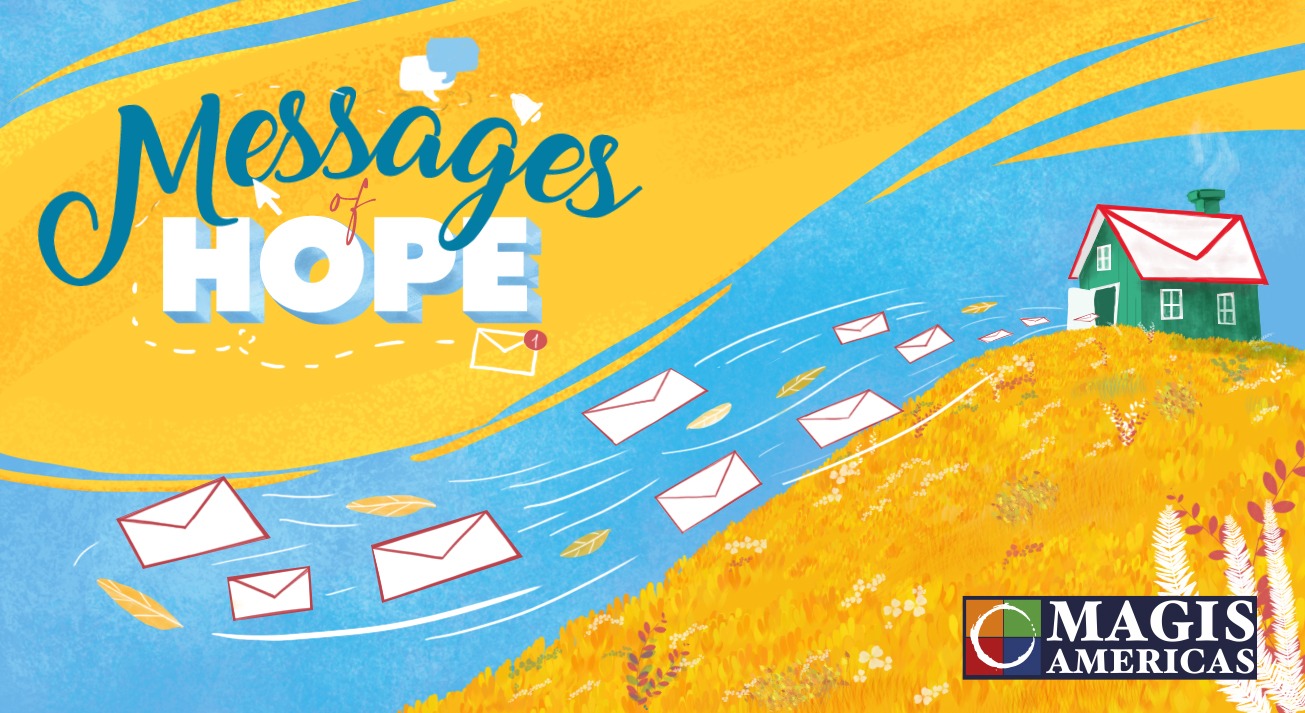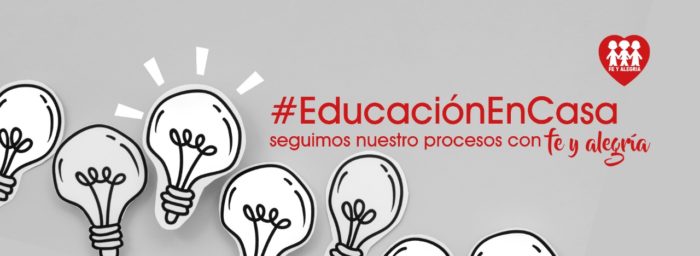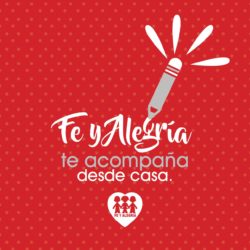Over the past two months the COVID-19 pandemic has forced one-third of the world’s population to stay home, testing the resilience of health systems, national economies and a myriad of human rights. The virus has had a paradoxical effect: on one hand it has equally affected all peoples and nationalities; on the other it has aggravated differences and highlighted inequalities.
In this context full of complexities and uncertainty, we at Magis Americas believe that now, more than ever, we need messages of hope. Messages of hope from from our friends and family; from those we know and those we do not. Messages of hope that remind us to care for ourselves. Messages of hope that motivate solidarity for our communities, both near and far.
We look for messages of hope that inspire us to continue accompanying the most marginalized and vulnerable communities in Latin America and the Caribbean, as they work toward constructing communities and societies that are just, that respect the innate dignity of every person and that are equitable, in both opportunity and in the defense of human rights.
Throughout the COVID-19 pandemic, Magis Americas has continued to work with our Global South partners to ensure that education, migration and ecology projects are not interrupted.
FE Y ALEGRÍA | RIGHT TO EDUCATION
The COVID-19 pandemic has forced school closures across the globe, with more that 1.576 billion students in 188 countries currently out of school. This shocking statistic represents 91.3% of the global student population, according to UNESCO.
As our partners at Fe y Alegría adapt to this new reality, we are together reviewing needs and accompanying educational communities in each of the 22 countries where Fe y Alegría is present.
Distance Learning | Fe y Alegría has turned to distance learning, in multiple formats, as it is necessary to adapt to each country’s context. For example, Fe y Alegría Chile has created a digital teaching material repository; in Peru, Fe y Alegría has designed a web page to record classes. In other cases, such as Brazil, Guatemala, Argentina and the Dominican Republic, Fe y Alegría is disseminating educational materials through various social media platforms. Fe y Alegría Bolivia, for example, is accompanying teachers through WhatsApp, working to reach each of its 400 educational centers.
In each instance, the objective is to leave no one behind: to ensure that no child or adolescent stops “attending” class and to ensure that the digital divide does not increase the exclusion of students and families with fewer resources. In many regions where Fe y Alegría is present, Internet access is limited or sporadic, many families do not have a computer at home or do not have access to a mobile phone with Internet data. In some cases, even electricity is limited. As a result of these technological barriers, the challenge of distance learning is even greater.
Radio Education | Countries like Venezuela have a long history of education through radio. The National Network of Radio Fe y Alegría has 23 stations scattered across Venezuela, which, at this time of confinement, is offering classes twice a day, and will expand the number of daily classes offered in the near future. In the Dominican Republic, radio and television are two of the tools being used to allow students to continue their education. Additionally, Fe y Alegría Dominicana has designed two educational guides for parents: one on how to educate their children at home, and another guide on how to reinforce the educational content. In Peru, another country with a long tradition of education through radio, Fe y Alegría is working to adapt its radio network to offer formal education courses.
In Guatemala, Fe y Alegría has developed a protocol that has been sent to each school, giving teachers and administrators recommendations on how to establish distance learning taking into account four scenarios: students with Internet access; students with access to WhatsApp; students with access to a telephone (landline or mobile); and the students with access to radio or television.
Food Security | The cancellation of classes mean that, in addition to the right to education, others rights are suspended, such as, the right to food. In many communities the school cafeteria represents the only place where students are guaranteed a daily meal. As a result, the national closures of schools across the region has a direct impact on students’ food security.
Together with Fe y Alegría, we are quickly analyzing local realities and adapting to circumstances to continue distributing food, where possible.
In Venezuela, together with partners such as Entreculturas, we are working to respond to a crisis on top of the existing humanitarian crisis to ensure that Fe y Alegría can continue operating its national school nutrition program, particularly in the state of Anzoátegui.
In the Dominican Republic, parents and support staff are distributing breakfast and lunch to the families of students. In neighboring Haiti, food is being distributed to children and adults who live on the street. For its part, Fe y Alegría Colombia is delivering food packages and, in both Paraguay and Guatemala, Fe y Alegría schools that can comply with appropriate health measures are distributing food kids at the schools themselves.
Domestic Violence | Schools are more than physical structures. In many cases they are the heart of the community. They are recreational spaces, libraries, meeting places, a source of food security and, most importantly, they provide a safe space.We are concerned that, without going to school, millions of girls and boys will be more exposed to abuse and violence.
Connoisseurs of this reality, Fe y Alegría is identifying initiatives to care for vulnerable children and youth. In Uruguay, for example, teaching teams are accompanying and supporting the needs of children and youth in situations of violence that are exacerbated by confinement. In Haiti, the Society of Jesus is promoting urgent and immediate accompaniment of the most vulnerable families.
We need your help to continue accompanying Fe y Alegría in the most marginalized and vulnerable contexts and where the health, economic and social impacts of this crisis are going to be much greater. Please consider lending your support at this time.
[maxbutton id=”4″ ]




